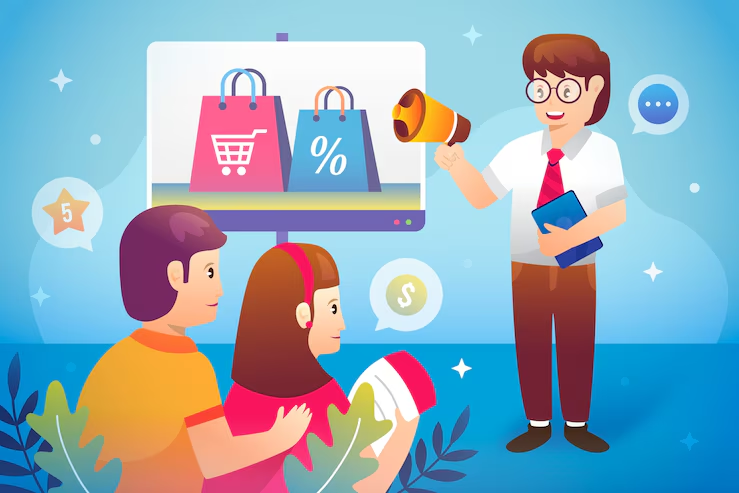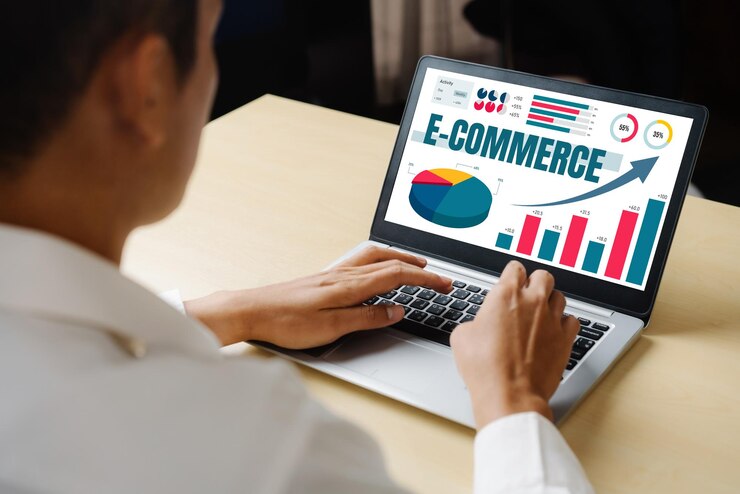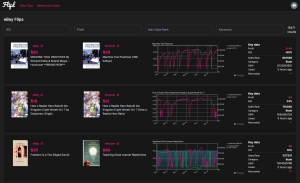In this digital age, online businesses across all industries have enjoyed a boom. E-commerce website and app development services, SaaS platforms, affiliate websites or content-based blogs; entrepreneurs are establishing their virtual empires, which may have some interested buyers in the future. Not all online businesses are equally attractive to buyers. When intending to buy an attractive online venture, certain qualitative and quantitative aspects influence the decision of a well-educated buyer.
Key elements are generally what buyers focus on. Thus, whether you are in the process of selling your online business or want to know how to increase its valuation, this article will help you.
Consistent and Diversified Revenue Streams
Businesses having a stable stream of revenue are attractive to buyers. Usually, a solid financial performance over 12–24 months convinces a buyer of the viability of the business in the longer term.
Key Indicators:
- Monthly recurring revenue (MRR) or annual recurring revenue (ARR)
- Diversification of income (e.g., product sales, affiliate commissions, ad revenue)
- Low customer churn (especially for subscription-based models)
- No overreliance on a single client, traffic source, or product
Business establishments having a considerable share of income interlinked with a single major customer tend to be more risky. Buyers are interested in the operations where revenue streams balance each other for stability.
Clear and Accurate Financial Records
Transparency is vital while selling any business. A buyer will be expecting clean, well-maintained, reconciled, and verifiable financial statements. These will be used as the base for due diligence and the measure for determining the valuation of the business.
Must-Have Financials:
- Profit and Loss (P&L) statements
- Balance sheets
- Tax returns
- Traffic and sales analytics
- Inventory reports (if applicable)
The process can be made painless by using cloud accounting tools such as QuickBooks, Xero, or Wave. The less labour involved in your documentation, the smoother the sales process will be.
Strong Traffic with Quality Sources
Traffic is the lifeblood of your online business. Buyers want to see traffic, but they care more about where that traffic is coming from, and its quality and sustainability.
What Buyers Examine:
- Organic search traffic (SEO) vs. paid ads
- Conversion rates and bounce rates
- Traffic geography and demographics
- Traffic consistency over time
Buyers often see a higher amount of organic search analytics or direct traffic as being more valuable than paid traffic, because organic or direct traffic implies customer loyalty and relies on long-term SEO strength. To boost your inbound and outbound lead quality, using a free email finder can help convert high-intent LinkedIn traffic into verified contacts—making your lead acquisition more efficient and your business more attractive to buyers.
Well-Defined Business Operations
Potential buyers look for systems that are efficient, documented, and automated often supported by a reliable sales management system to streamline and track performance across teams. Businesses that require less input from the current owner become much more appealing.
What This Includes:
- Standard Operating Procedures (SOPs)
- Outsourced or in-house team structure
- Customer service protocols
- Inventory and order fulfilment (for e-commerce)
- Content creation workflows (for media-based businesses)
Strong Brand Identity and Market Position
A business that has a brand name, reputation, customer loyalty, and competitive advantage receives better offers. As explained by ZenBusiness, when you form a successful brand, you develop brand equity, which means customers are willing to pay higher prices for your product than for competitors’ offerings due to their loyalty and positive perception of your brand. While brand equity is not always easily quantifiable, it is valuable.
Signs of Strong Branding:
- Professional website and design
- Consistent messaging and tone
- Active and engaging social media presence
- Customer testimonials and reviews
- High domain authority and brand mentions
Growth Potential
Buyers not only buy businesses for what they are—they buy them for what they can become. A business with growth opportunities will demand a premium price.
Growth Opportunities Include:
- Untapped marketing channels (e.g., email marketing, social media ads)
- Product line expansion
- Geographic expansion
- Partnership opportunities
- Content and SEO improvements
Investing in expert SEO services can dramatically boost your brand’s online visibility, attract organic traffic, and improve search rankings. A strategic SEO plan ensures your content reaches the right audience at the right time — turning visibility into valuable conversions
Customer Base and Retention Rates
A loyal customer base is a tremendous asset. Buyers consider how frequently customers come back, how emotionally invested they are in the business, and the Customer Lifetime Value (CLV).
Buyer Considerations:
- Size and engagement of your email list
- Retention rate or repeat purchase rate
- Customer acquisition cost (CAC)
- Reviews and Net Promoter Score (NPS)
Owner Involvement and Transferability
A business with significant owner involvement–especially when the owner is involved in technical or niche-related activities–is generally looked upon as a red flag. Buyers tend to prefer businesses where owner involvement is easy to transfer, and the team can operate the business.
Buyers Favor:
- Low owner dependency
- Delegated tasks or virtual assistants
- Pre-recorded training or onboarding documents
- Easily transferable licenses and subscriptions
Legal Compliance and Intellectual Property
Buyers want assurance that the business is compliant with all laws that govern the business and that the intellectual property (IP) is secure.
What Buyers Expect:
- Trademarked brand names or logos
- Legitimate business registration and licensing
- No ongoing legal disputes or liabilities
- Proper use of third-party assets (images, software, content)
Platform Independence and Technical Stability
Using a third-party platform (like Amazon, Shopify, or Etsy) can drive growth, but consumers see it as a real degree of dependency. by utilizing tools such as bureauworks, businesses can reduce this dependency and gain more control over their operations. A business that possesses its own website, customer data, and fulfilment channels is more appealing.
Buyer Preferences:
- Custom or self-hosted websites over marketplace dependence
- Clean, fast-loading, and secure website infrastructure
- Backups and disaster recovery plans
- Mobile-friendly and optimized design
Final Thoughts
Selling an online business is not just about big profits or huge traffic. Every buyer is getting more intelligent and looks at everything holistically: operations, branding, financials, and growth potential. If you want to sell or exit your business in the future, you must prioritize building a stable, scalable, and transferable business.
By focusing on the areas developed in the previous article, you will not only create a more attractive business for future potential buyers but also improve the day-to-day functioning of your business. Whether you own a content site, an e-commerce brand or a SaaS business, these are the pillars of value that every smart buyer pays attention to.











